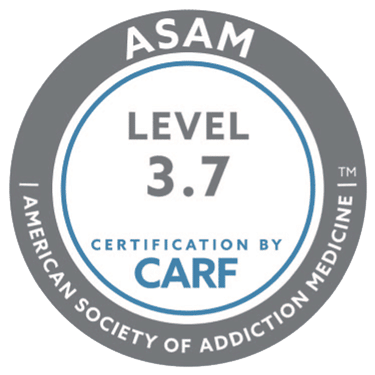Do you have flaws? That question can be hard to answer if you’re not ready to admit your character defects, and it can be doubly difficult if you’re not ready to admit that you have a substance abuse problem. However, you should know that everyone has a character flaw or two. It’s part of what makes us human, and when character flaws are dealt with successfully, they can lead to addiction recovery and personal growth. When they’re not dealt with effectively or the person refuses to acknowledge their flaws, it can stall the recovery process and lead to relapses. Let’s take a look at character flaws and how they relate to addiction recovery.
What Are Character Defects?
Character defects, sometimes called character flaws, are undesirable traits or shortcomings in a person’s thinking and/or behavior. Examples of character defects include jealousy, greed, pride, and selfishness. Individuals with these traits may exhibit behaviors such as self-pity, self-centeredness, or self-justification. These traits can increase their vulnerability to addiction and make it challenging to accept help for their recovery.
Common Character Defects that Can Hinder Recovery
Individuals who are in recovery should take the time to understand themselves and their flaws. This is because ignoring the flaw instead of embracing and overcoming it can hinder recovery. Common character defects that can stall a person’s progress in addiction recovery include:
- Lying or Being Dishonest – This may involve lying about drug or alcohol use or minimizing the degree of consumption. It can also include hiding drugs, alcohol, and paraphernalia, reflecting self-seeking tendencies.
- Being Prideful – Excessive pride can prevent individuals from admitting to themselves and others that they have a substance use problem. Self-righteousness can make it harder for them to accept guidance.
- Striving to Appear Perfect – Perfectionism can be detrimental for those in treatment, as they may feel pressured to meet unachievable standards. This fear of failure may lead to self-condemnation and addictive behaviors or deter them from seeking help.
- Succumbing to Impulsivity – Individuals who are impulsive may not fully consider all of the consequences before participating in an activity, and this can include drinking and doing drugs.
- Being Arrogant – An overinflated ego can create setbacks in recovery, as self-importance may lead individuals to believe they can handle their substance dependency alone, making it difficult to ask for help.
- Being Inflexible – Inflexibility can lead to stagnation in recovery because the individual can’t accept change.
- Being Selfish – Selfishness involves focusing solely on one’s own needs, often disregarding the needs of others. This self-centered attitude can strain relationships during recovery.
- Succumbing to Anger – Individuals who have anger issues may lash out at friends and family members who are concerned about their drug use and refuse any help that is offered.
- Harboring Resentment – Many people who are fighting substance use disorder harbor resentment. Resentment can sometimes co-occur with anger. This is because individuals who are recovering from substance use disorder may resent their living situations. They may strongly dislike having to go to treatment, and they may be angry or embarrassed over the mistakes they’ve made in their lives.
How Character Defects Can Lead to Unhealthy Thought Patterns
Having character flaws or defects can lead to unhealthy and sometimes obsessive thought patterns. Individuals who are struggling with addiction may dwell on past actions and past use. They may replay moments in their mind where they lied about their drug use or spent money they didn’t have to buy drugs or alcohol. Individuals who have poor self-esteem or low feelings of self-worth may believe that they’re not worthy of recovery.

How Character Flaws and Unhealthy Thought Patterns Stall Drug Rehabilitation
Character flaws combined with unhealthy thought patterns can stall recovery and even lead to relapses. For example, an arrogant person may believe that they can hide their continued drinking or drug use and just pay lip service to treatment. Someone with low self-esteem may convince themselves that treatment will never work for them, and that they deserve the addiction and hardships in their lives. An inflexible person may reject new treatments or new ideas that may help them recover.
How Can Someone in Treatment Overcome Their Character Flaws, Recover and Grow as a Person
Treatment centers, like Recreate Behavioral Health in Boca Raton, understand that people with substance use disorder often have a character flaw or two that they need to identify, accept and overcome. In order to help recovering addicts accomplish these goals, treatment centers usually offer a variety of behavioral health services.
Steps to Overcoming Character Defects
If you’re trying to get help for substance abuse but finding it difficult to adhere to the program due to some of your personality traits, there are things you can do to overcome your personal character defects.
- Perform a Thorough Self-Assessment – Think about your current and past behavior. Are there things you’d like to change, or can you identify any weaknesses?
- Recognize that You Are Human and Have Flaws – The second step involves admitting that you have weaknesses and areas where you could improve. Many 12-step programs make this an actual step to overcome. In faith-based programs, individuals are encouraged to admit their flaws to themselves, a higher spiritual power, their family members, friends and peers.
- Recognize and Seek Out Help – Once you recognize that you have an addiction and character flaws, it’s time to ask for help from a treatment center, like Recreate Behavioral Health. We offer treatment for alcoholism, benzos, kratom addiction, marijuana addiction, opioid dependency and addiction to stimulants. We also offer treatment for a variety of mental and behavioral health issues.
- Accept Treatment and Make Amends – Next, accept the offered help and work with your counselors and therapists. Working with professional addiction and mental health counselors can help you further recognize your character flaws, harmful thinking patterns and destructive behaviors so that you can create new, healthy behaviors and coping mechanisms.
- Continue on a Path of Positivity – Overcoming addiction and growing as a person is an ongoing process. Remember to focus on the positive while dealing with any lingering negative emotions and thoughts.
Treatment Programs for Substance Abuse at Recreate Behavioral Health in Boca Raton
At Recreate Behavioral Health, we offer a variety of programs to help individuals overcome their addictions as well as their mental and behavioral health issues. It all starts with a thorough assessment. This assessment allows us to create a personalized treatment program that addresses your physical, spiritual and mental health needs.
Next, you’ll enter detox. Depending on your drug of choice, you may be eligible for medication-assisted detox. We also offer medical supervision and palliative care.
After detoxing, you’ll enter your treatment program. At Recreate Behavioral Health, we offer residential programs, outpatient programs and partial hospitalization. Your program will depend on your degree of addiction, relapse risk and your work or family responsibilities.

Behavioral Therapies for Character Defects and Mental Health
There are behavioral therapies that can help people identify their flaws, decrease negative thinking and create positive habits and behaviors.
- Cognitive Behavioral Therapy – Cognitive Behavioral Therapy or CBT is very useful for helping individuals identify harmful thoughts and behaviors. It’s effective in treating alcohol and drug addictions as well as severe mental health issues.
- Dialectical Behavioral Therapy – Dialectical Behavioral Therapy or DBT is a form of CBT. It’s also effective at treating substance abuse and various mental health disorders, including BPD, PTSD, depression and anxiety. It focuses on helping people who have trouble managing their strong emotions and accepting the reality of their lives. It also helps people improve their bad behaviors while positively changing their lives.
- Motivational Interviewing – Motivational interviewing helps people understand how and why they are motivated to do something. For example, someone might be motivated to quit drinking alcohol in order to improve their family relationships or better their health. Motivational interviewing helps the person focus on their reasons for quitting while increasing their commitment to the process.
Addiction Treatment Support at Recreate Behavioral Health in Florida
At Recreate Behavioral Health, you will find the support and accountability you need to identify and overcome your character flaws and substance use disorder. Our addiction treatment programs include personalized approaches to help you build a foundation for lasting recovery. Whether you’re interested in a 12-step recovery approach or a comprehensive recovery program tailored to your needs, we’re here to support you. If you’re ready to work on yourself and put your addiction in the past, give us a call.
FAQ
What is the list of character defects in AA?










